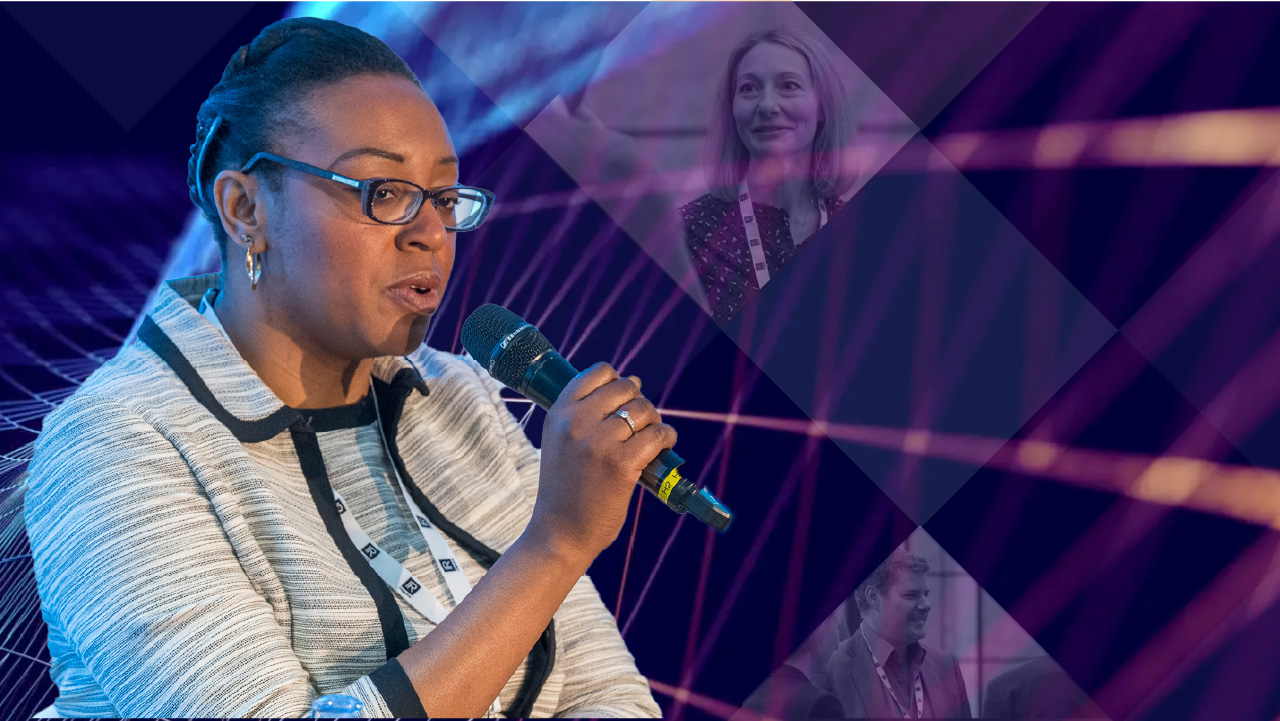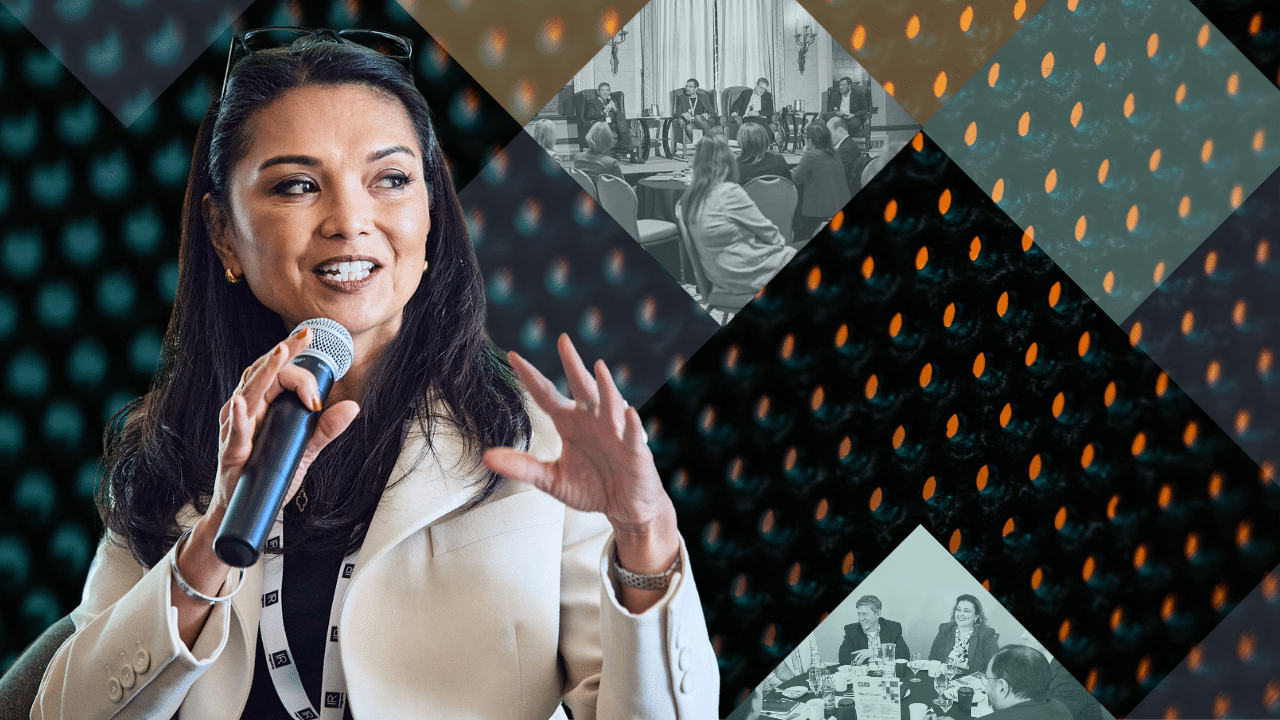Galata Wind Enerji’s head of IR speaks ahead of the IR Forum – AI and Technology Europe
Ahead of our upcoming IR Forum – AI and Technology Europe, set to be held in London on March 13, IR Impact has caught up with some of the event’s leading speakers to understand how they currently handle emerging technologies in their role, and the particular aspects of that usage that they will discuss in more detail on the day.
Müge Yücel, director of investor relations and sustainability at Galata Wind Enerji, a renewable energy producer with wind and solar plants, is set to discuss the implementation journey for AI and other technologies in a morning session alongside Claudia Thome, senior vice president investor relations at CompuGroup Medical. Yücel is also a member of the IR Impact editorial board.
Below, she discusses her own progress in using AI to complement Galata Wind Enerji’s IR program, and previews some of the other sessions she is excited to attend on the day.
Tickets to attend the IR Forum – AI and Technology Europe are available here.

You’ll be talking on a panel titled ‘Navigating the different stages of your AI adoption journey: assessment, implementation and usage’ at the Forum. Which aspects of this important topic are you keen to explore?
I’m really looking forward to seeing where we stand as an industry at this event. It’s a great opportunity to get a solid grasp on what AI can bring to the table in investor relations. From my own experience, understanding what AI is capable of — and what it isn’t — right from the start is crucial. I think this event will give us some clear insights into both the possibilities and the limitations of AI.
We’ve probably all realized by now that while AI can seriously boost our IR efforts, it’s not here to take over our jobs. Many service providers are already incorporating AI to provide a better and targeted service, but we still need to handle the mundane stuff like data crunching and routine tasks ourselves. I know a lot of us also encounter some pushback when it comes to adopting new tech, especially when starting pilot projects, and it can be a real challenge to bring everyone on board. So, this will be a great platform to share with and hear from others.
What do you think is stopping more IROs from experimenting with or using AI?
From where I’m standing, a few big hurdles keep IROs from really diving into AI. First up, there’s the whole data privacy and security headache. With everyone watching how data is collected, used and stored, sticking to all those global data protection rules is no walk in the park.
But putting that aside for a moment, let’s talk about cost. Jumping into AI isn’t just about forking over some cash. It’s also about the time and resources you need to put in. For smaller companies or those just getting their feet wet with digital stuff, those upfront costs can be a real barrier.
Then there’s the tech talent issue. A lot of IROs don’t have the necessary technical skills right in their own teams to get AI up and running smoothly. When you’re faced with the daunting task of mastering complex algorithms and data analysis, it can feel like you’re stepping way outside your comfort zone.
And don’t get me started on the resistance to change. AI can really shake up how things are done, sparking worries about job security and changing roles. Without strong leaders showing how AI can actually help meet the company’s goals and improve our jobs, getting everyone on board can be a tough sell.
Can you tell us about how you are implementing AI in your role?
My AI journey kicked off not too long ago. I like to chat with service providers to see what’s new and how things are shaking up in the industry. Every now and then, you stumble upon something really cool. Whether it’s tools that suggest potential matching shareholders or programs that analyze the mood of your earnings transcript, AI has gradually woven itself into my work life. When things like ChatGPT and Gemini (initially called Bard) started gaining traction, I hopped on board too. I began using AI for translations, especially for legal and crucial announcements that needed a quick turnaround. Then, I moved on to having AI help polish up short paragraphs, and more recently, to whip up draft templates for press releases.
One area where AI really changed the game for us is in preparing for our quarterly earnings. We use AI to sift through trending questions and topics in our industry, prepping our management to handle what might come their way from analysts and investors. This forward-thinking strategy has not only boosted our executives’ confidence but it has really dialed up the quality of our interactions during earnings calls and sharpened how we control our narrative.
My big thing is AI for predictive analytics. Where is AI in forecasting market trends and investor reactions, real-time sentiment analysis to provide an insight to how investors feel about news and earnings releases? Or how could AI team up with tech like blockchain to boost transparency and security?
What are some of the biggest challenges you have faced in your profession so far and what do feel is the next big challenge on the horizon?
In my role as an IRO, one of the trickiest parts has been keeping up with the ever-shifting global financial markets. You’ve got economic ups and downs, endless regulatory updates, and investors whose expectations are always changing. It’s a lot to juggle. Getting complex financial information across in a way that’s both digestible and reassuring, especially during tough times or big company changes, is a hefty challenge.
Reaching your audience is another major hurdle. With everything moving so fast, you have to get creative to make sure your messages not only reach your investors but also resonate and stick with them. I’ve been thinking that AI might help with this, but figuring out the best way to use it so it really makes an impact? That’s still a bit of a puzzle.
On top of all this, there’s the growing importance of ESG initiatives. Investors are increasingly tuned into how these efforts affect financial performance, making it crucial for us to not only implement these initiatives but also communicate their impact effectively.
If you were to give your audience at the Forum one piece of advice, what would it be?
It’s not exactly a walk in the park, but here’s a thought: embrace a mindset of continuous learning and curiosity. The world of AI and technology is racing ahead like never before, and what’s working today might not cut it tomorrow. Especially in a fast-paced field like IR, keeping up with the latest AI developments, understanding what they mean for your work, and figuring out how to weave them into your strategies is crucial.
Start by getting yourself and your team up to speed — not just on the tech that’s out there now, but also on what’s coming down the road. Hit up workshops, subscribe to the right journals and chat to experts. And don’t be shy about experimenting! Kick off some pilot projects to see how AI tools really affect your processes and results. This way, you’re not just playing it safe, but you’re also snagging some great learning opportunities.
By staying curious and proactive, you’re not just keeping up but you’re setting the pace. That’s how you harness AI: not just to keep up, but to actually lead in your field.
Find out more about the IR Forum – AI and Technology Europe here.







